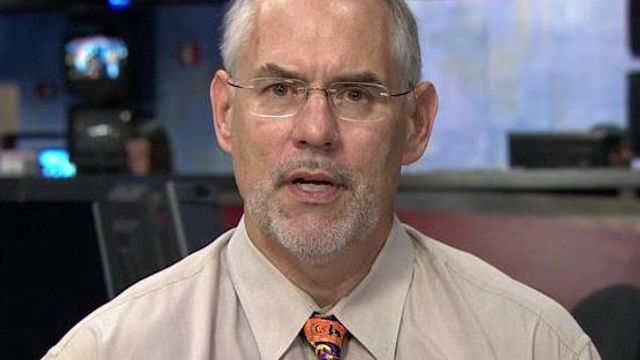'Super-slow growth' ahead on jobs, NCSU economist warns
ECU economist agrees. Seasonally adjusted numbers from East Carolina show no change in jobless rate in Triangle and only slight dip in N.C. NCSU’s Mike Walden points out that virtually all job growth is in government. Plus, more people dropped out of the work force which helps drive down jobless numbers.
Posted — Updated“I'm afraid we've entered a new phase of the economy - from slow growth to super-slow growth,” Walden told WRAL.com on Friday after analyzing new data. ‘This isn't another recession - the so-called double dip - but it does mean we're effectively moving only sideways.”
East Carolina University economist Dr. James Kleckley concurs.
"When I look at the [seasonally adjusted] data, I see that N.C. has gained 35,300 jobs since December, but 22,200 have been in government," Kleckley told LTW and WRAL.com. "So like Mike says, the economy is not growing as much as we would hope.
"I think that we are growing slowly," he added. " You probably could call it a sideways drift upwards."
The state Employment Security Commission reported that the jobless rate in the Triangle fell to 7.5 percent last month from 8 percent in August. Statewide, unemployment fell in 97 of 100 counties and all 14 major metropolitan areas.
The overall unemployment rate fell to 9.1 percent from 9.7 percent the previous month, but the ESC noted that the figure is not seasonally adjusted. Economists generally consider the seasonally adjust number to be more accurate in measuring the actual jobs picture.
"I think that any unadjusted rate can be misleading," Kleckley said of the ESC data. "First, you can only compare it to other unadjusted numbers (i.e., you should not compare unadjusted counties to the seasonally adjusted state number). Second, the only appropriate period-to-period comparison is to the previous year (September to September).
"When you seasonally adjust, you remove the seasonal factors from the information. Then you can compare any one month to any other," he added.
In the Raleigh-Durham-Cary-Chapel Hill metro area, unemployment remained unchanged in September from August at 7.8 percent.
In Raleigh-Cary, the adjusted rate was the same as the previous month at 8.1. percent.
In Durham-Chapel Hill, the rate also was identical at 7.1 percent.
The adjust statewide rate fell slightly to 9.6 from 9.7 percent.
Walden pointed out that one factor affecting the rate were either people dropping out of the workforce and therefore no longer measured statistically. Plus, job growth occurred primarily in the government sector.
“September was not a good month for the job market in North Carolina,” Walden said.
“Even though the headline unemployment rate dropped, this was only because of the large number of unemployed workers who dropped out of the labor force, and therefore aren't counted as unemployed,” he explained.
ESC data shows that the number of people in the work force fell by more than 31,000 while the jobs total increased by just over 4,000.
Meanwhile, government sector jobs increased by 20,000 across the 14 metro areas while the private sector lost jobs.
“The only substantial job gains were in local government - specifically local schools,” Walden said. “Most private sector categories shed jobs.”
The professional and businesses sectors added 1,500 jobs across the 14 largest metros, but at the same time manufacturing fell by some 1,400 and information related employment dropped by 300.
In the Triangle, job growth of 2,200 jobs in Durham-Chapel Hill and 500 in Raleigh-Cary came largely through 4,300 government positions.
Last week after the statewide ESC data report was issued, Walden also cautioned against belief that the jobs picture is improving.
Referring to the declining size of the job force, Walden noted:
“We think most of these are ‘discouraged workers’ who have stopped looking for work and therefore aren't officially counted as unemployed. Based on the household survey, the number of jobs [in N.C.] actually declined by 6,665 in September.”
Walden noted that the survey of employers did show growth yet added a couple of caveats.
“The second jobs survey - the ‘payroll survey’ - did show an increase in jobs of 10,100, but 9,600 of these were in government,” he explained. “Leisure and hospitality was the largest private sector job gainer. However, seven of the 10 private sector industry categories registered a drop in jobs.”
Whether North Carolina's job situation improves depends on the rest of the global economy, Kleckley said.
"The slow growth in N.C. will continue until the nation begins to grow more quickly," he explained. "We certainly should continue all economic development efforts, but the single largest influence of growth is the national (and now global) economy."
Copyright 2024 by Capitol Broadcasting Company. All rights reserved. This material may not be published, broadcast, rewritten or redistributed.






